RIBA Photo archive and exhibition visit
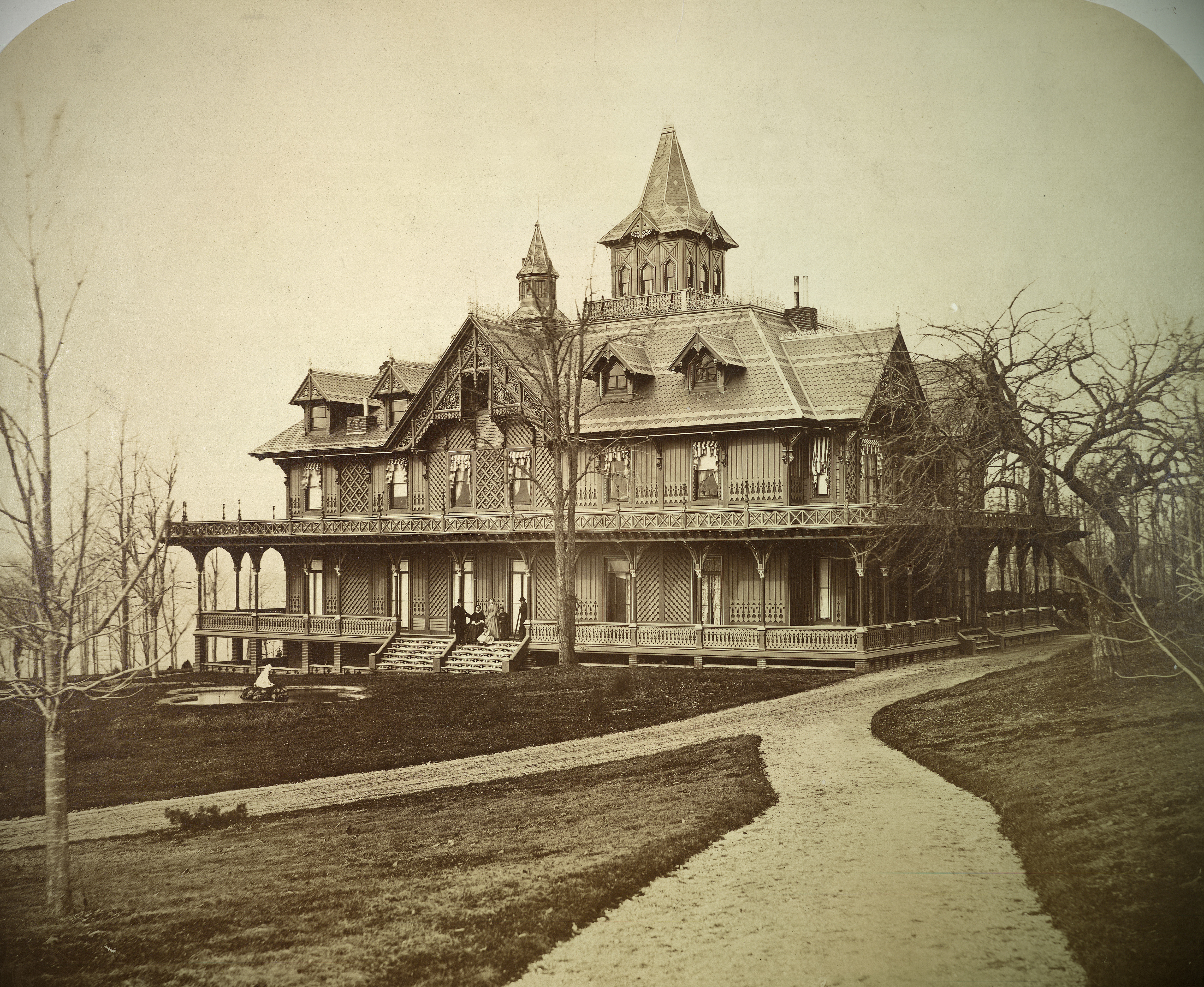
Glen Chalet, Glen Cove, Long Island (1864) RIBA Collections
PCN Collections tour and exhibition visit at RIBA
The Photographic Collections Network have partnered with RIBA Archive to host a collection and exhibition tour on 19th October 2023 1pm. Due to venue size tickets are limited.
The Robert Elwall Photographs Collection at the Royal Institute of British Architects (RIBA) is one of the largest and most comprehensive of its kind in the world, spanning the whole history of the medium and including most types of photographic processes. This in-person event will include a curator's tour of the exhibition Wide-Angle View: architecture as social space in the Manplan series 1969-70 and an exclusive view of some of the collection's highlights, including 19th century photographic albums, large exhibition prints from the 1930s, glass negatives and examples of the work of Edouard Baldus, Bedford Lemere, Dell & Wainwright, Edith Tudor-Hart, Edwin Smith, Julius Shulman, Judith Turner, Hélène Binet and many others.
Image below: Children's playground, Pepys Estate, Deptford, London (1970) Tony Ray-Jones / RIBA Collections
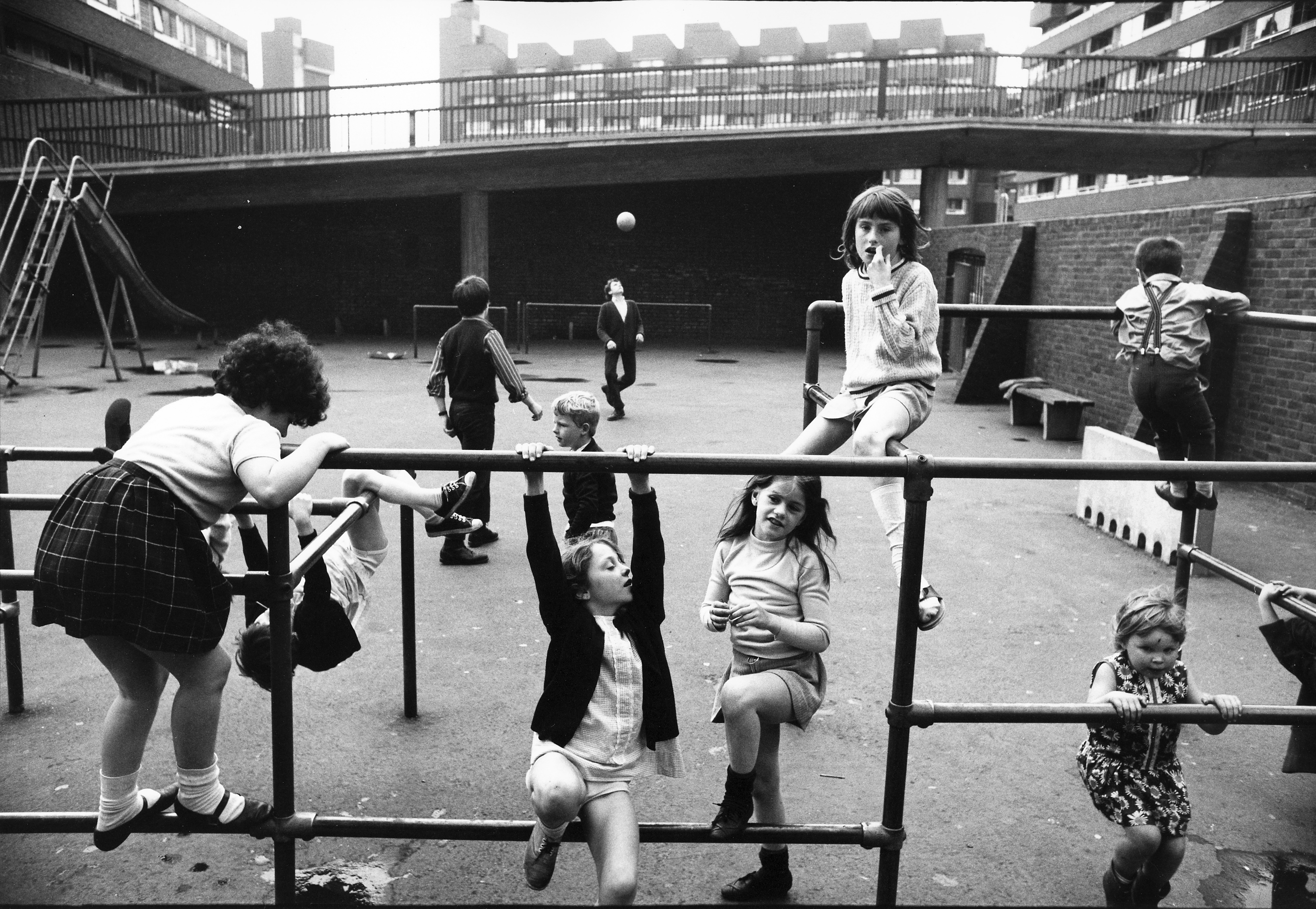
- Tickets for this event are not available.
Preservation of Photographic Materials: Planning and Implementing New Storage for Photographs
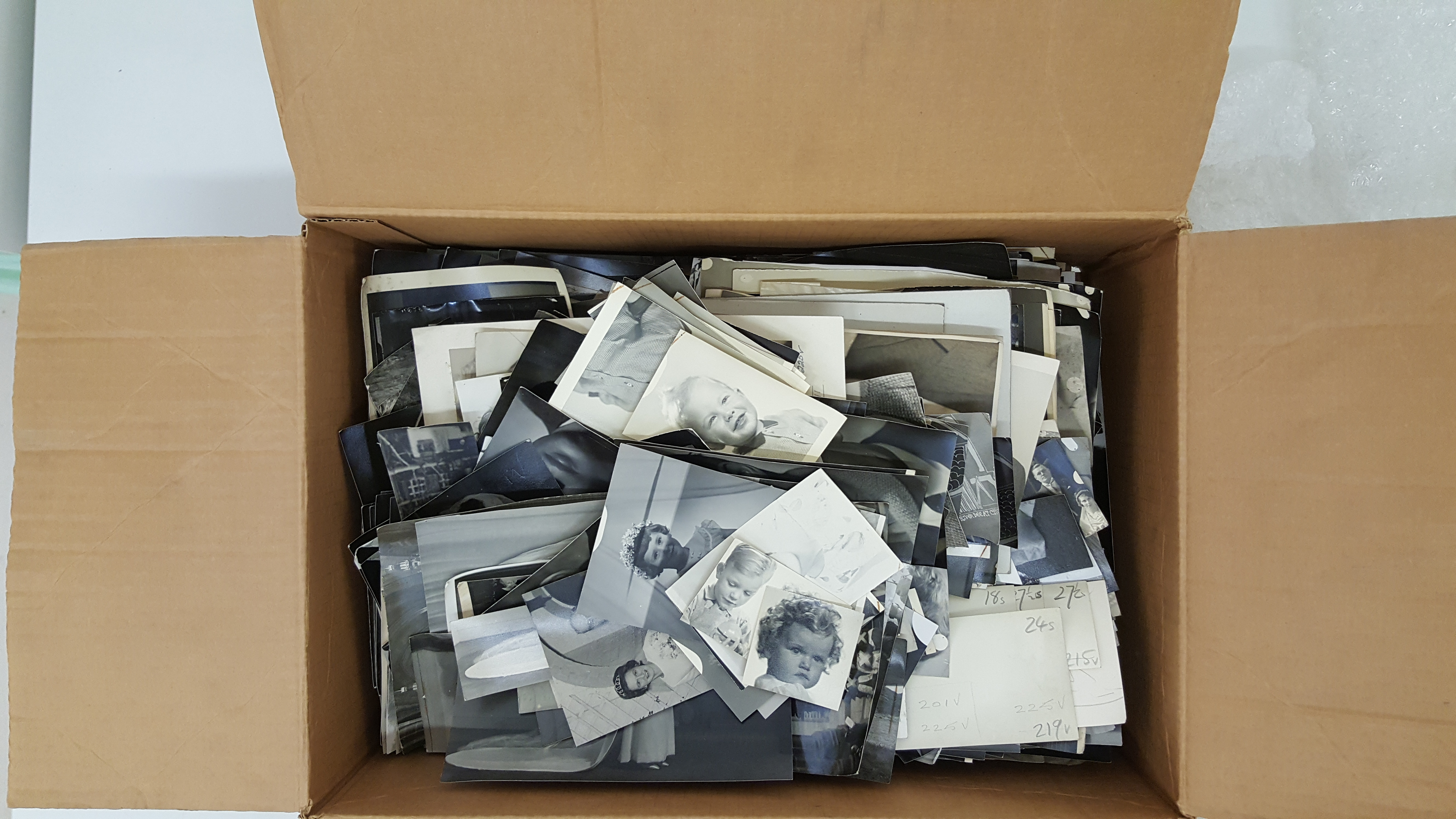
An on-line training session for the Photographic Collections Network
Tuesday 17 October 2023 1:30-3.00pm
Course Leader: Anita Bools ACR
Providing improved storage for photography collections kept in less-than-ideal conditions can be daunting, especially when resources are limited, or the collection is large and complex. Different processes and formats often require specific storage materials and methods - but ‘getting it wrong’ when selecting new systems may cause damage.
This session aims to help participants recognise when new storage is required, identify what might be needed and gain confidence in being able to plan and implement new storage to aid long-term preservation.
Intended Audience
The session is aimed at participants who work with collections of photographs. Some participants may have little knowledge of photographs prior to this session but have photographs within their collections. Others may have much deeper experience with photography collections but wish to improve their knowledge and understanding of photographic materials to facilitate long-term preservation.
A range of techniques will be utilised to promote learning and cater for different learning styles. This will include viewing and learning about examples on screen, discussion, demonstrations and following practical activities. Active participation is encouraged to maximise learning from this session.
About the Tutor
Anita Bools ACR is the National Trust’s Senior National Conservator for Paper and Photography, a highly experienced photographic materials professional, lecturer and qualified teacher. She was a founding committee member and chair (2009 – 2013) of ICON Photographic Materials Conservation Group and formerly Senior Paper and Photographic Materials Conservator with the North-West Museums Service.
Anita has worked for the National Trust since 1995. She sets standards and guides the National Trust in caring for its extensive photographic collections, supports research and advises staff in caring for collections, new acquisition, and loans. She is currently the sponsor for a complex conservation, cataloguing and visitor engagement project. As a photographic materials conservation consultant Anita has worked across diverse organisations and regularly runs training sessions in caring for photographic materials.
Prior to the session:
It will be useful for participants to have:
A pencil and notebook for note-taking and/or a phone-camera - to note any instructions on screen prior to activities.
Reviewed and noted any issues relating to storage of photographs in their own collection and consider what factors may be preventing implementation of improvements.
This session will be recorded and uploaded to the membership area of the PCN website (Membership is only £25 per year)
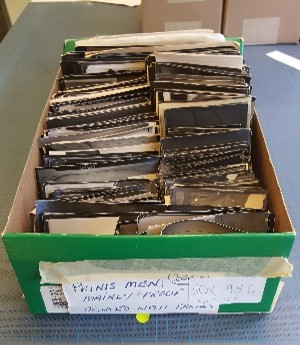
- Tickets for this event are not available.
Hybrid Volunteering: A New Approach to Photographic Collections
National Museums Scotland/Online
Hybrid Volunteering: A New Approach to Photographic Collections
Date: Thursday, July 20th
Location: National Museums Scotland/Online
As part of the AHRC funded research project Communities and Crowds – National Musuems Scotland in partnership with PCN are holding an online workshop on the 20 July, which looks at a new approach to volunteer led digitation which leads to volunteer created citizen science platforms. We’ll be sharing what we have done to date – and welcoming input from volunteers, scholars, museum professionals and other cultural heritage institutions that are interested in applying this approach to their own work and/or collections
Summary: Volunteering with heritage collections is often separated between in person opportunities to work with GLAM institutions, or as massive online participation activities - such as platforms for crowdsourced research. This hybrid conference will bring together heritage professionals, volunteers, and digital humanities scholars to explore how we can combine in person and online volunteering with GLAM collections to make for a richer and more engaged volunteering opportunity. The workshop will share initial results from the AHRC funded Communities and Crowds research project, which has created a new volunteer-led digitization to participatory research process for photographic collections. It will also invite GLAM professionals, in-person and remote volunteers to help us explore the next steps for expanding this approach to other collections and projects.
Programme
9:30-9:45 - Communities and Crowds: An overview and Introduction (Geoff Belknap, Keeper of Science and Technology, National Museums Scotland)
9:45-10:30 - A New Volunteer led Digitization approach (Alex Fitzpatrick, Research Associate, National Science and Media Museum)
10:30-10:45 - Break
10:45-11:30 - Digital Volunteering and New Talk Infrastructure (Sam Blickhan, Humanities Lead for Zooniverse and Co-Director of the Zooniverse team at Chicago's Adler Planetarium)
11:30-12:00 - Group trial of How did we get here (Volunteer Created Zooniverse Project - National Science and Media Museum)
12:00-1:30 - Lunch
1:30-2:00 - Exploring Histories of Community in the Archives: Perspectives from Project Volunteers (Sandra Rowe, Maureen Rowe, Lincoln Anderson, Rebecca Smith)
2:00-2:30 - Unlocking the Potential of Virtual Volunteering (Matt Hicks, Head of Volunteering, Science Museum Group)
2:30-3:00 - Building an easy-to-use App and designing efficient data workflows tailored for volunteering collections projects (Lawrence Brooks, Collections and Data Manager, Science Museum Group)
3:00-3:30 - Break
3:30-4:30 - Workshop Open Discussion - Photographic Collections Network Facilitated
Applying this approach to your photographic collection?
What should a Holistic Hybrid Volunteering Toolkit look like/include?
4:30-5:00 - Discussion and Next Steps
You can attend in person on online, if you are interested in attending, please email: p.carr@nms.ac.uk
- Tickets for this event are not available.
Preservation of Photographic Materials Session 2: Photographic Processes and their Problems
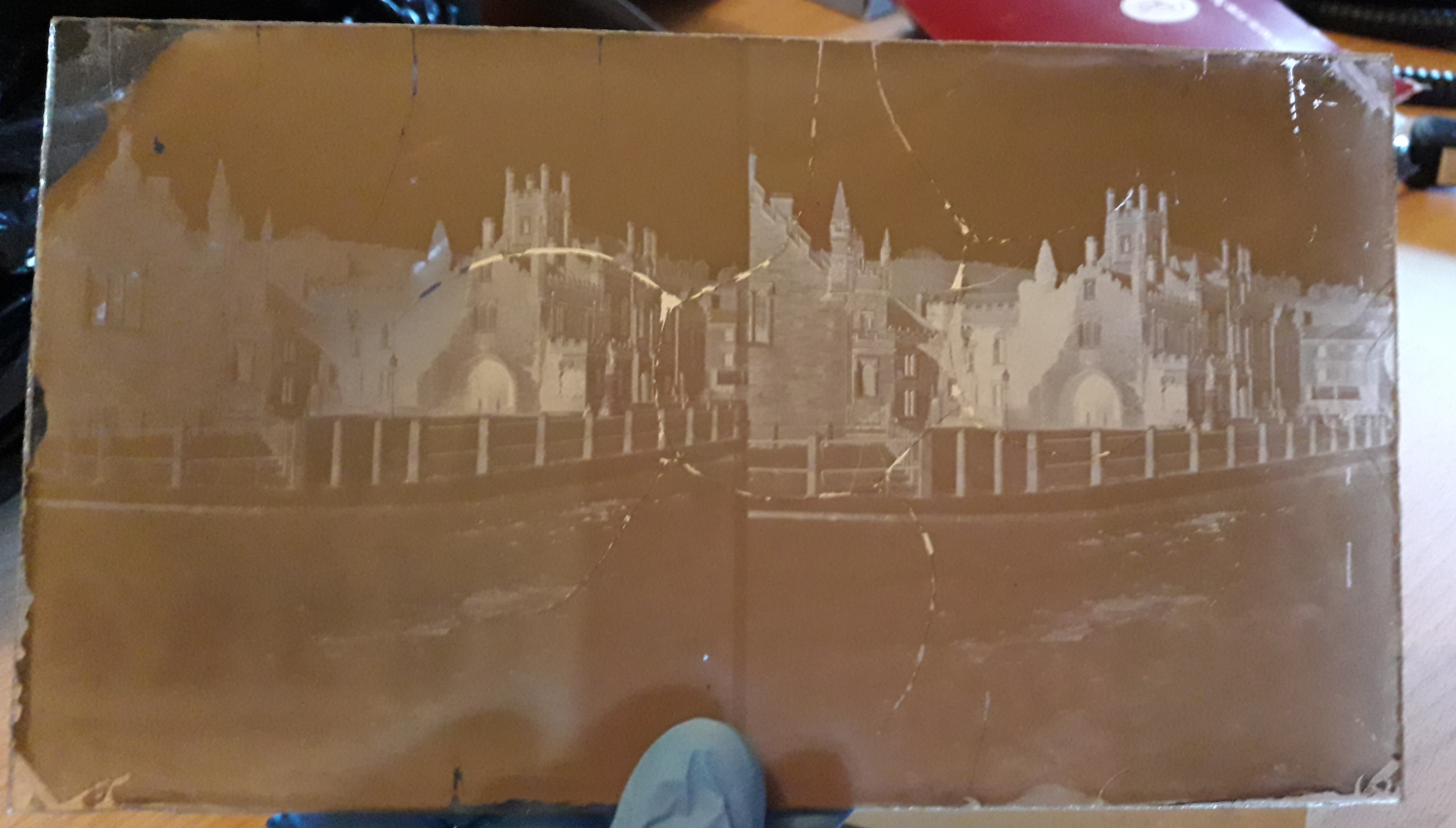
Join us in this online event looking at Preservation of Photographic Materials, led by Anita Bools
There are many different photographic processes, each of which have inherent weaknesses caused by the materials and methods utilised in their creation. External factors, such as a photograph’s environment, also affect condition. Correctly identifying a photograph’s process and recognising problems is important to ensure that appropriate actions can be taken to aid long-term preservation.
This session aims to help participants gain confidence in identifying different types of photographs (predominantly monochrome processes) and recognising internal and external damaging factors which have a detrimental impact on their condition.
Intended Audience:
The session is aimed at participants who work with collections of photographs. Some participants may have little knowledge of photographs prior to this session but have photographs within their collections. Others may have much deeper experience with photography collections but wish to improve their knowledge and understanding of photographic materials to facilitate long-term preservation.
A range of techniques will be utilised to promote learning and cater for different learning styles. This will include viewing and learning about examples on screen, discussion, demonstrations and following practical activities. Active participation is encouraged to maximise learning from this session
About the Tutor:
Anita Bools ACR is the National Trust’s Senior National Conservator for Paper and Photography, a highly experienced photographic materials professional, lecturer and teacher. She was a founding committee member and chair (2009 – 2013) of ICON Photographic Materials Conservation Group and formerly Senior Paper and Photographic Materials Conservator with the North-West Museums Service.
Anita has worked for the National Trust since 1995. She sets standards and guides the National Trust in caring for its extensive photographic collections as well as advising, training and supporting staff in caring for collections. As a photographic materials conservation consultant, Anita has worked across diverse organisations – from British Telecom to the Royal Opera House. In 2018 she was awarded a travel bursary from the Bei Shan Tang Foundation to attend and present a poster at the IIC – Palace Museum Beijing Symposium. Anita took study leave in 2013 to obtain qualified teacher status from Reading University, subsequently teaching all national curriculum subjects part-time in primary schools. In 2022 Anita ran several sessions on caring for photographic materials for the National Trust and GLAM: Oxford University galleries, libraries and museums as well as Preservation of Photographic Materials Session1: Understanding Photographs, for the Photography Collections Network.
Prior to the session:
It will be useful for participants to have:
- A pencil and notebook for note-taking and/or a phone-camera - to note any instructions on screen prior to activities.
- Looked at photographs they might own or are in a collection, noting general or specific problems for potential inclusion in discussion.
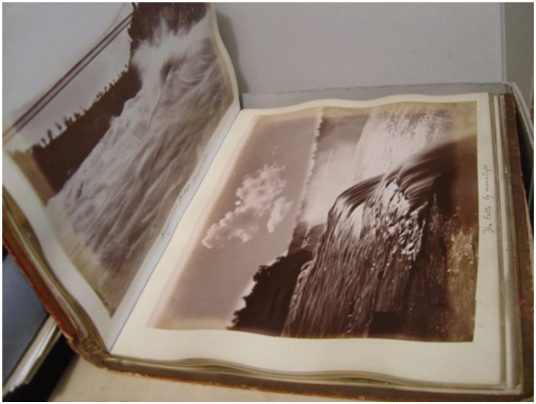
- Tickets for this event are not available.
What Photographs Do
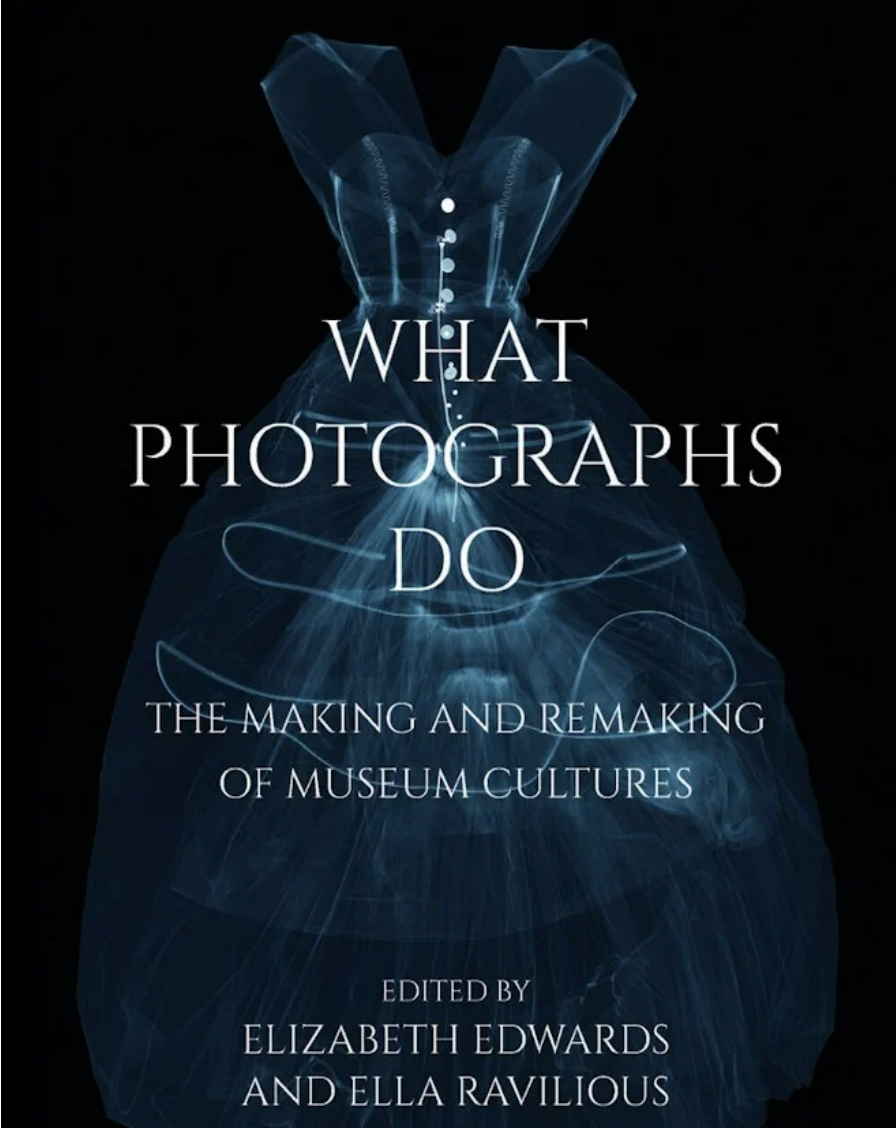
online
This event was hosted online in March 2023, a recording of the talk can be found here: https://www.photocollections.org.uk/page/what-photographs-do-role-photographs-museums
What are photographs 'doing' in museums? Why are some photographs valued and others not? Why are some photographic practices visible and not others? What value systems and hierarchies do they reflect?
Talk by Elizabeth Edwards and Ella Ravilious explores how museums are defined through their photographic practices. It focuses not on formal collections of photographs as accessioned objects, be they 'fine art' or 'archival', but on what might be termed 'non-collections': the huge number of photographs that are integral to the workings of museums yet 'invisible', existing outside the structures of 'the collection'. These photographs, however, raise complex and ambiguous questions about the ways in which such accumulations of photographs create the values, hierarchies, histories and knowledge-systems, through multiple, folded and overlapping layers that might be described as the museum's ecosystem.
These photographic dynamics are studied through the prism of the Victoria and Albert Museum, London, an institution with over 150 years' engagement with photography's multifaceted uses and existences in the museum. The book differs from more usual approaches to museum studies in that it presents not only formal essays but short 'auto-ethnographic' interventions from museum practitioners, from studio photographers and image managers to conservators and non-photographic curators, who address the significance of both historical and contemporary practices of photography in their work. As such this book offers an extensive and unique range of accounts of what photographs 'do' in museums, expanding the critical discourse of both photography and museums.
This talk coincides with the new V&A book What Photographs Do written by Elizabeth Edwards and edited by Ella Ravilious.
Tickets by donation
- Tickets for this event are not available.
Creative Commons Licenses and Collections

Online, Zoom
About the Event
Want to know more about how to navigate the different CC licenses, and find out if they work for your archive or collection?
Creative Commons aims to build capacity, develop practical solutions, and advocate for better open sharing of knowledge and culture that serves the public interest. How does that work for your archive or collection? How does this impact on collections we use?
In this two-hour training session, Creative Commons will provide a brief overview of what CC licensing and public domain tools are, as well as their context in copyright, and movements for open knowledge and culture. They will demonstrate how to choose and use CC licenses and tools, providing interactive exercises for workshop participants.
If you enjoy this event, you may want to think about signing on to a creative commons certified course Creative Commons (CC) Certificate program. The CC Certificate program offers global courses for academic librarians, educators and members of cultural heritage communities -- though everyone is welcome. They offer some scholarships, and course content is freely available on their website, under a CC BY license.
About Creative Commons
Creative Commons is a nonprofit organization that enables the sharing and use of creativity and knowledge through free legal tools.
Their free, easy-to-use copyright licenses aims to provide a simple, standardized way to give the public permission to share and use creative work — on conditions of the users' choice. CC licenses enable changes in copyright terms from the default of “all rights reserved” to “some rights reserved.”
Creative Commons licenses are not an alternative to copyright. They work alongside copyright and enable modifications in copyright terms to suit different needs. They've collaborated with intellectual property experts around the world to ensure that our licenses work globally.
However, Creative Commons is not necessarily the right fit for every archive or collection. This session aims to share information about the terminology and licenses to enable you to make the decisions for your collection or archive.
___________
Who is it for?
It is open to archives, museums, collections, researchers, photographers of any genre, experience and background who would like to gain more insight into Creative Commons, to understand if it fits your needs
When
This event runs on Wednesday 1st February 2023; 2pm - 4pm.
Where
Zoom online. You will need an internet connection and a computer, smartphone or tablet. You do not need a Zoom account to take part.
It will take place online via zoom to try and make it as accessible as possible. If you have any specific access needs please get in touch and let us know. Contact: rebecca@redeye.org.uk
Tickets
Event is donation-based. Book via Redeye https://www.redeye.org.uk/programme/events/creative-commons
- Tickets for this event are not available.
Representation, Diversity, Inclusion in, and Access to (photo) Collections and Archives
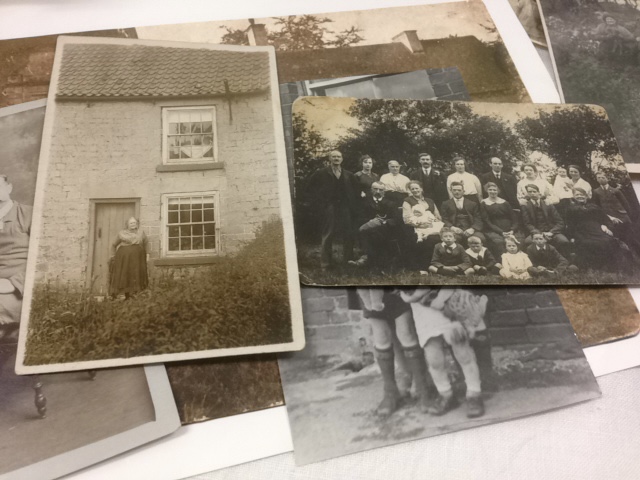
Watch a recording of this seminar here: https://www.photocollections.org.uk/page/representation-diversity-inclusion-and-access-photo-collections-and-archives
The aim of this seminar on 20 January, is to share ideas and promote conversation about how we make (photo) collections and archives more representational and diverse, how we ensure that those who are included in collections have access to them, how we can enable that collections and archives are more inclusive. There are great projects happening all over the UK and we invite some of them to speak and share their experiences. This event recognises the hard work that archives and institutions do in difficult times of job and budget cuts, and questions how can we work together with communities to create and support more representational, diverse, and inclusive practices.
The day will feature panel discussions to explore important questions such as: What are the barriers to the wider public accessing and engaging with regional and national archives? What can we do to make collections and archives more inclusive? How do we encourage more diverse stories to be recorded and shared? And, how can we work together to be better?
Seminar speakers include the inspirational projects of; Apna Heritage Archive, Museum of Youth Culture, Nottingham Black Archives, and Historical Photos of China. See below for more info about these projects.
From this event we want to create a working group to meet regularly to discuss these topics and move the conversation forward. We welcome projects, organisations and cultural leaders to reach out and join in the conversation, please get in touch if you have a project or ideas to share.
Projects & Speakers:
Apna Heritage Archive, in Wolverhampton is led by Black Country Visual Arts (BCVA) who received a grant from the Heritage Lottery Fund in 2016 to fund the project. Over a period of two years (2016-2018) BCVA brought together a collection of over 2000 historic photographs and memorabilia relating to Punjabi migration to Wolverhampton from 1960 to 1989 and curated a very popular exhibition (Jan2018-March2018) at Wolverhampton Art Gallery which was extended by the City Council. Anand Chhabra Director of BCVA initiated and found the relevant project partners with a focus on ‘city wide agglomeration’ on the project which includes: Guru Tegh Bahadur Gurdwara, St Luke’s Primary School, Wolverhampton Art Gallery, Wolverhampton City Archives and the University of Wolverhampton. 75 present day portraits from within the Punjabi community were created by two photographers. The collection is housed in a dedicated archive space at the Guru Teg Bahadur Gurdwara in Upper Villiers Street, Blakenhall, Wolverhampton and will remain for a period of 5 years. A digital collection of the archive will be provided to Wolverhampton City Archives so that future generations will have access to the archive. This original project has led to school resources and further exhibitions and projects.
Speaker, Anand Chhabra is a founder, director and the incumbent Chair at Black Country Visual Arts and has been involved in the arts as a photographer for over 20 years. He began a full time career as artist beginning as Wolverhampton’s recipient of the ‘Collide’ programme in 2005. Anand as Director at Black Country Visual Arts since it was founded in 2014 has initiated all their projects single-handedly including finding partners, writing proposals and sourcing funding for their projects up to date which include Exodus : Movement of a People, Desi Pubs and Apna Heritage Archive. Anand initiated and profiled the AHA project to Community Archives and Heritage Group winning the award for best New Archive in the UK in 2017. Anand continues to work on photographic projects that profiles stories in ethnic communities that remain untold. At the heart of Anand’s work is people and the stories that they share. He recently received a British Council grant to conduct research around the family album and present on Punjabi migration in India with considerable success presenting at India’s major institutions Dr Bhau Daji Lad in Mumbai and Punjab Lalit Kala Akademie in Chandigarh. Anand continues to work on various photographic commissions and on exhibitions. In 2018 Anand was shortlisted for Magnum Foundation’s Photography in Collaboration : Migration and Religion and has been nominated for Prix Pictet 2019 for his work SUPNAA : Dreams of our Fathers.
Based at the University of Bristol, the 'Historical Photographs of China' project began work in 2006. It grew from being the subject of a ‘Dissemination award’ to Robert Bickers, as PI on an Arts & Humanities Research Council funded project on the 'History of the Chinese Maritime Customs Service'. It developed into an initiative that searched for material far beyond descendants of the staff of the Customs Service. Initially, support for publication online was provided by generous collaborators at the Institut d’Asie Orientale, Lyon. But 2017 saw the launch of the current platform, now wholly based at the University of Bristol, and designed and maintained by the University.
The project locates, digitises, and publishes online photographs of China held, largely, in private hands outside the country. Our aim is to help make this virtual photographic archive of modern China publicly available, open access, which we do under a Creative Commons Attribution-NonCommercial-NoDerivatives 4.0 International Licence (CC BY_NC_ND 4.0). This licence means that the low resolution images published on the platform are protected protected by Copyright Law and are not for commercial use in any form or any medium without the owner’s permission. Download, transmission, or print, for research or educational purposes, is permitted, providing that the provenance is acknowledged.
The project has in this way brought over 20,000 photographs into the public domain which would otherwise not be discoverable, and provides archive standard long-term preservation for them, and for a further c.30,000 images that have been digitised and preserved, but not published online.
The Museum of Youth Culture is an emerging museum celebrating the everyday lives of teenagers in Britain. The museum was founded from the photographic collection YOUTH CLUB Archive, and has a collection of both professional and vernacular photographs. The Grown up in Britain campaign works to collect a history of youth culture through family photographs. The museum works to place young people at the heart of our social history.
Speaker, Lisa der Weduwe joined the Museum of Youth Culture in 2016. Initially supporting the Museum's first National Lottery Heritage Funded project, Lisa has led public outreach, education and volunteer projects over the last 4 years, activating the archive by championing accessibility and diversity within the collections.
Nottingham Black Archives (unfortunately NBA had to cancel their talk due to unforseen circumstances)
Nottingham Black Archive (NBA) the idea for a resource that made Nottingham black history available to the wider public came about in 2009 and in 2010 the Nottingham Black Archive was founded. The aim of the archive is to research, collect and preserve Black history, heritage and culture in Nottingham, from the earliest time to the present day. The collection holds some of the earliest documents relating to the formation of Black community organisations in Nottingham, as well as, a growing archive of oral histories, including many from the first generation of Africans and Caribbean’s to reside in Nottingham. The archive also holds photographs, articles, newsletters, books and political letters dating back to the 1940s.
Nottingham Black Archive is dedicated to collecting, preserving and celebrating the histories of people of African descent in Nottingham. The NBA programme of exhibitions and events provide a platform from which to share the diversity of cultures originating from Africa and the Caribbean, past and present. The collection promotes the teaching, learning and understanding of African Caribbean peoples’ contribution to Nottingham and provides an accessible permanent record of the richness of the Black experience in Nottingham.
Speaker, Panya Banjoko (founder of NBA) has over twenty years of experience working in the heritage sector for a number of museums around the country. She has worked as Learning and Engagement Project Worker, outreach worker, managed a number of heritage projects and regularly develops Museum’s Loans Boxes. She has an MA in Museum Studies achieved at the University of Leicester.
- Tickets for this event are not available.
Family Album, Close to Home: Co-producing Multigenerational Narratives of Polish Resettlement in the UK
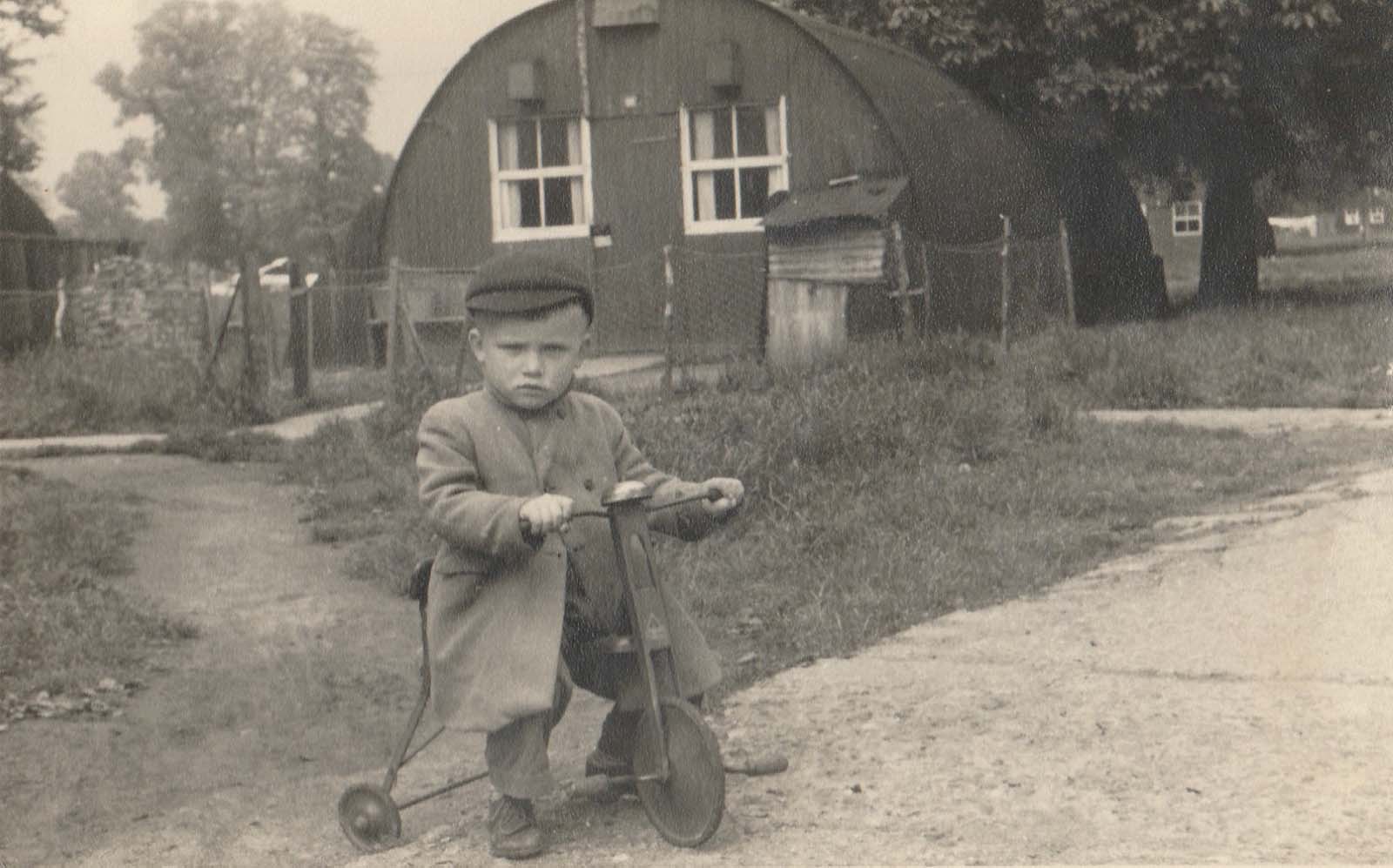
Watch the recording of this talk here: https://www.photocollections.org.uk/page/family-album-close-home-co-producing-multigenerational-narratives-polish-resettlement-uk
Can we use photographs to bring together and connect the dots between the diverse experiences of diasporic people living in Britain across multiple generations?
Rio (aka Ryś or Maryś) Creech-Nowagiel, is an AHRC PhD candidate at Cardiff University & Imperial War Museums. Rio will discuss their experience using private family photographs - including those sourced from their grandparents' albums - as the basis for an exhibition that spotlighted the stories of Polish refugees placed in Grove Park resettlement camp after the Second World War.
Rio will share their experience working within their own 'community' bringing together photographs and oral testimony offered by former residents of the camp. They will reflect on the potential of co-creative practice to generate photographic exhibitions that have cross-generational appeal to groups that have been historically marginalised and absent from the photographic collections of local museums.
Read more about Rio's project here: https://groveparkcamp.wordpress.com/
This talk is part of a programme to share latest PhD research in the Photographic History Sector, if you are an academic reseracher and would like to propose a talk for PCN please get in touch with us, we'd love to hear from you.
- Tickets for this event are not available.
Preservation of Photographic Materials Session 1: Understanding Photographs as Materials
PRESERVATION OF PHOTOGRAPHIC MATERIALS SESSION 1: UNDERSTANDING PHOTOGRAPHS
Online training session
Tuesday 6 December 2022 1-2.45pm COURSE LEADER: ANITA BOOLS ACR
Who is this session for?
This session aims to provide an understanding of traditional photographs i.e. those produced by chemical, rather than digital means. It is about the nature of photographs - what makes them special but can also bring challenges in caring for them.
The session is aimed at participants who work with collections of photographs. Some participants may have little knowledge of photographs prior to this session but have photographs within their collections. Others may have much deeper experience with photography collections but wish to improve their knowledge and understanding of photographic materials to facilitate long-term preservation.
Learning Objective
To gain an understanding of photographs and the materials from which they are made, in order to apply conservation principles and techniques to help preserve collections.
Learning Outcomes
- Begin to understand the multi-faceted nature of photographs
- Recognise how the development of early photography led to the use of different materials, formats, presentation and purpose.
- Understand that these differences often affect their condition, and the steps necessary for their preservation.
Teaching and Learning Methods
A range of techniques will be utilised to promote learning and cater for different learning styles. This will include viewing and learning about examples on screen, discussion, demonstrations and following practical activities. Active participation is encouraged in order to maximise learning from this session.
About the Tutor
Anita Bools ACR is the National Trust’s Senior National Conservator for Paper and Photography, a highly experienced photographic materials professional, lecturer and teacher. She was a founding committee member and chair (2009 – 2013) of ICON Photographic Materials Conservation Group and formerly Senior Paper and Photographic Materials Conservator with the North-West Museums Service.
Anita has worked for the National Trust since 1995. She sets standards and guides the National Trust in caring for its extensive photographic collections as well as advising, training and supporting staff in caring for collections. As a photographic materials conservation consultant, Anita has worked across diverse organisations – from British Telecom to the Royal Opera House. In 2018 she was awarded a travel bursary from the Bei Shan Tang Foundation to attend and present a poster at the IIC – Palace Museum Beijing Symposium. Anita took study leave in 2013 to obtain qualified teacher status from Reading University, subsequently teaching all national curriculum subjects part-time in primary schools. Earlier in 2022 Anita ran several sessions on caring for photographic materials for National Trust conservators and externally, for GLAM: Oxford University galleries, libraries and museums.
Course Requirements
It will be useful for participants to have the following at hand during the session:
- A photograph of their own (non-collection item). (This is for a handling exercise and can be of any type or size, or even a photograph cut from a magazine attached to card).
- Pencil and notebook for note-taking and/or a phone-camera - to note any instructions on screen prior to activities.
- Tickets for this event are not available.
Orphan Works and Photo Collections
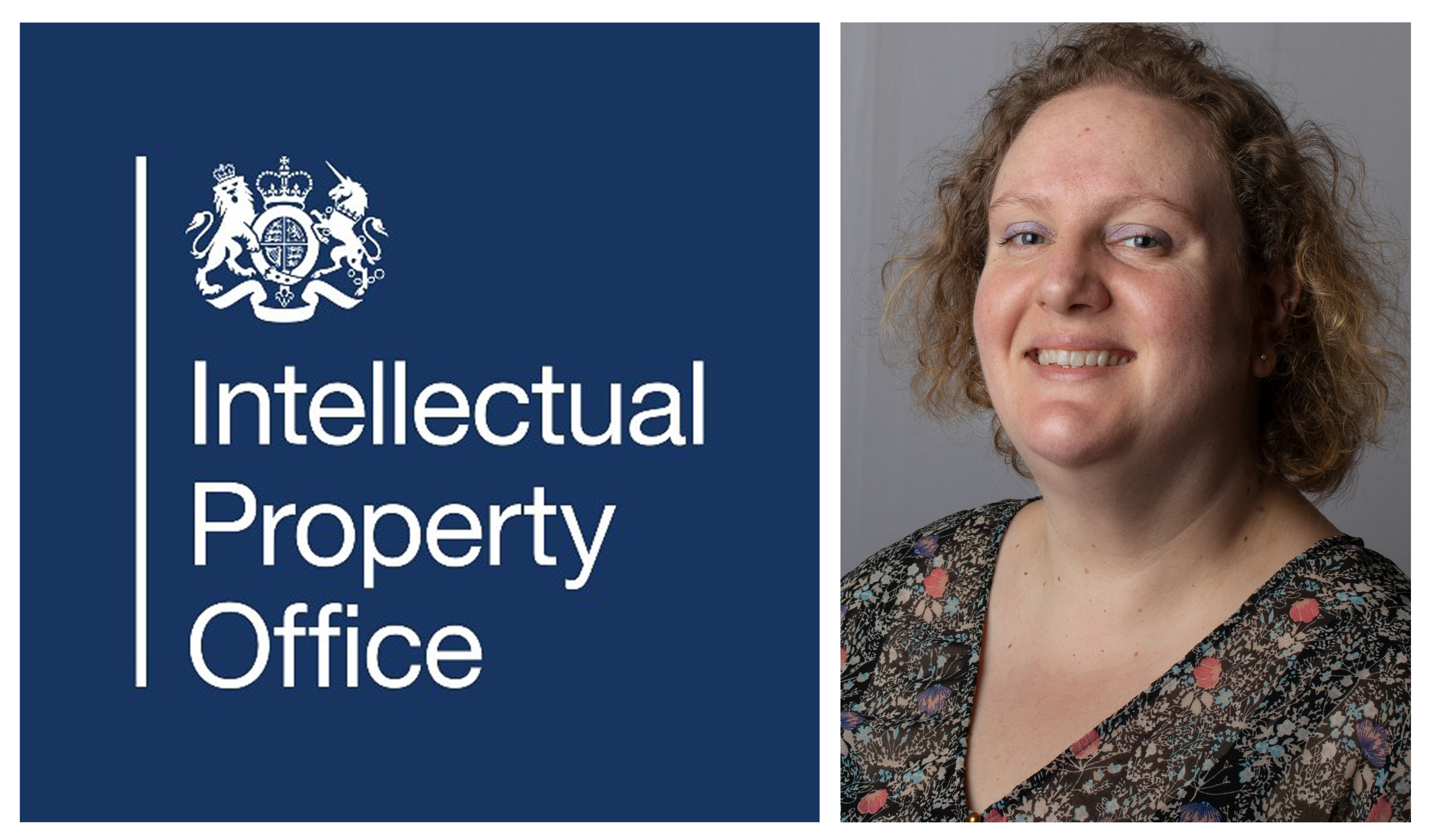
Zoom
Orphan Works are creative works that are subject to copyright for which one or more of the rights holders is either unknown or cannot be found. Understanding how Orphan Works in relation to photographic collections can be a bit of a minefield. To help you navigate we are running a virtual event with Margaret Haig from the government's Intellectual Property Office, on Wednesday 6th July, 1pm via Zoom.
The talk will cover important things you need to know in relation to working with Orphan Work images; how you can use them, how to seek out licenses and more.
To help you make the most of this session we would like you to submit any questions for the event beforehand via this form: https://forms.gle/Zey1eqg8kXm2WriJ6 Please note that Margaret will not be able to answer questions on specific legal disputes, and we cannot guarantee to be able to answer all questions. However, if you do send your questions ahead of the event we can research these to give you the best possible answers.
Booking is free, with the option of a donation to support PCN's work. You will receive a confirmation email when you book, and the event link will be sent to you on the day of the event.
If you have any questions about the event please send them to info@photocollections.org.uk
- Tickets for this event are not available.
